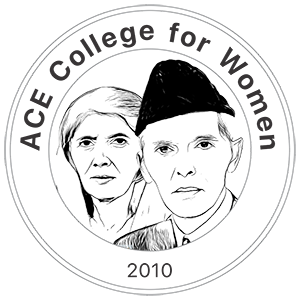Environmental Status of Discharged Hospital Wastewater and its Effects on Morpho-Physiological Characteristics of Vigna unguiculata, Zea mays and Glycine max
| Received 14 Nov, 2023 |
Accepted 10 Feb, 2024 |
Published 24 Feb, 2024 |
Background and Objective: There is an increasing universal awareness of environmental problems arising as a result of pollution, especially in Nigeria. Among the sources of this problem is effluent discharge from industries, particularly hospitals in arable farmlands and environs. This study was carried out to ascertain the environmental status of discharged hospital wastewater and its Effects on early seedling establishment of Vigna unguiculata, Zea mays and Glycine max. Materials and Methods: Discharged wastewater from the three locations (WWSP1, WWSP2 and WWSP3) was collected and homogenized for the bioassay. The concentration was prepared by mixing appropriate volumes of distilled water with the wastewater effluents to obtain 0, 3, 6, 9 and 13% (v/v). Each concentration served as a treatment. Physicochemical properties of the waste water samples were determined using established protocols while heavy metals concentrations were obtained using AAS. The microbial load and frequency of occurrences were determined using an established procedure. Results: There was no significant difference (p>0.05) in the physicochemical parameters of the wastewater samples across the three sampling sites. The heavy metals identified in the wastewater were Pb (mg/kg), As (mg/kg), Cr (mg/kg), Cd (mg/kg), Ni (mg/kg) and Hg (mg/kg) at varying concentrations ranged from 0.015±0.2 to 0.927±3.34d mg/kg. These values were within WHO permissible limits. Microorganisms isolated from the wastewater were Staphylococcus aureus, Escherichia coli, Pseudomonas aeruginosa, Salmonella typhi, Bacillus subtilis and Klebsiella pneumonia. The growth parameters of the test plants were significantly (p<0.05) affected in a dose-dependent manner. Conclusion: Therefore, the study established that hospital effluent can pose environmental health risks and possibly affect early seedling establishment when not properly treated before discharge.
How to Cite this paper?
APA-7 Style
Nnawuike,
A.J., Ekene,
I.C., Gideon Nzenwa,
U.M., Odinaka,
P., Chinedu,
O.C., Melchizedek,
U. (2024). Environmental Status of Discharged Hospital Wastewater and its Effects on Morpho-Physiological Characteristics of Vigna unguiculata, Zea mays and Glycine max. Asian Science Bulletin, 2(1), 85-91. https://doi.org/10.3923/asb.2024.85.91
ACS Style
Nnawuike,
A.J.; Ekene,
I.C.; Gideon Nzenwa,
U.M.; Odinaka,
P.; Chinedu,
O.C.; Melchizedek,
U. Environmental Status of Discharged Hospital Wastewater and its Effects on Morpho-Physiological Characteristics of Vigna unguiculata, Zea mays and Glycine max. Asian Sci. Bul 2024, 2, 85-91. https://doi.org/10.3923/asb.2024.85.91
AMA Style
Nnawuike
AJ, Ekene
IC, Gideon Nzenwa
UM, Odinaka
P, Chinedu
OC, Melchizedek
U. Environmental Status of Discharged Hospital Wastewater and its Effects on Morpho-Physiological Characteristics of Vigna unguiculata, Zea mays and Glycine max. Asian Science Bulletin. 2024; 2(1): 85-91. https://doi.org/10.3923/asb.2024.85.91
Chicago/Turabian Style
Nnawuike, Azorji, JohnPaul, Igwe Charles Ekene, Ugochukwu Mmasi Gideon Nzenwa, Peter Odinaka, Okehie Clement Chinedu, and Ukeje Melchizedek.
2024. "Environmental Status of Discharged Hospital Wastewater and its Effects on Morpho-Physiological Characteristics of Vigna unguiculata, Zea mays and Glycine max" Asian Science Bulletin 2, no. 1: 85-91. https://doi.org/10.3923/asb.2024.85.91

This work is licensed under a Creative Commons Attribution 4.0 International License.



